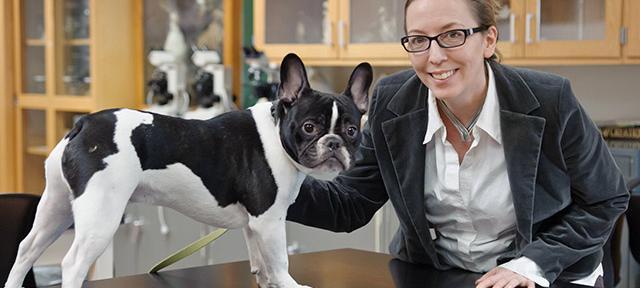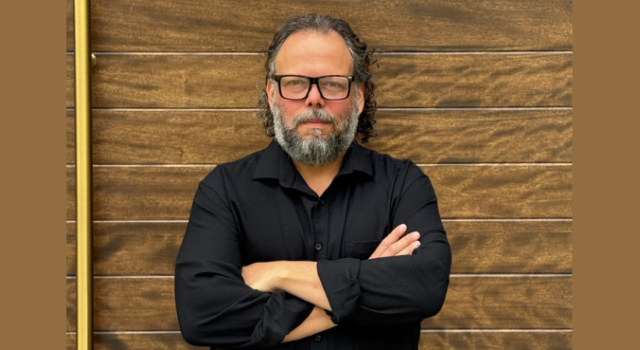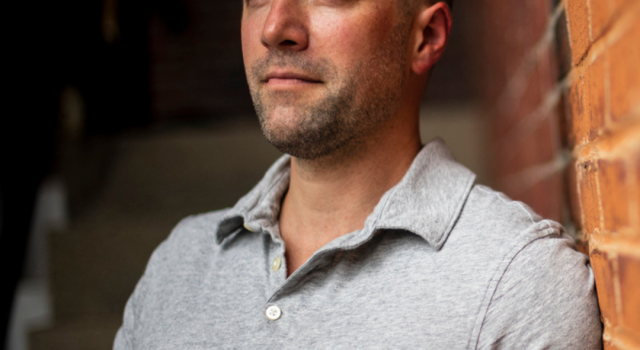Abby Grace Drake's "Significant" Discovery About Dog Evolution

When Abby Grace Drake 93F sees dogs, she doesn’t just see “man’s best friend.” Dogs are “an amazing system to study for evolutionary biology,” Drake says, pointing to their relatively quick evolution as a species and their coexistence with their ancestor, the wolf.
“It’s incredibly rare to have the opportunity to study both the descendant and the ancestor,” she says.
Drake, an assistant professor of biology at Skidmore College, recently published a paper in the journal Scientific Reports stating that domestication of dogs happened more recently in human history than previously thought.
Drake theorizes that wolves essentially domesticated themselves, feeding on scraps and trash at the perimeter of human developments. The boldest wolves came closer to the settlements, learning that an easy supply of food was there, and eventually became the domesticated dogs familiar to us today.
Professor Emeritus of Biology Raymond Coppinger, who was Drake’s adviser at Hampshire, says her discovery is significant: “The paper she just published was a blockbuster. For years geneticists and paleontologists have been claiming the dog was thirty thousand years old, or evolved thirty thousand years ago, based on some skulls. Abby showed beyond a doubt that they were wolf skulls and not dog. That doesn't mean there weren’t dogs twenty to thirty thousand years ago, but rather at the present time there is no evidence for it.”
Coppinger was an important influence on Drake early in her studies. “Ray was the reason I got started in all of this,” Drake says. “He introduced me to the idea of studying dogs, and the idea that dogs are an amazing system to study for evolutionary biology. I owe it all to him. He got me set down that path.”
For her Division III (senior) project, Drake used one of the first 3-D digitizers made to study dog and wolf skulls at the Smithsonian. Using the digitizer to map coordinates in the skulls, Drake tested — and subsequently disproved — the theory that dogs evolved as wolves arrested in a juvenile state.
Drake’s Div III “taught me to be a good scientist, and a critical thinker,” she says. “That’s essential. Spending many hours in the lab, that’s only half of it. The other half is to be a very, very critical thinker. That’s been essential to how I do science, and not just being critical of other people’s work, but being critical of your own. Science has to be repeatable, and you need to make sure you’re taking sound measurements, questioning the status quo, learning how to think, and using that method of inquiry.”
“Hampshire allows you freedom and creates an incredible amount of self-discipline. You learn you either work really hard or you don’t,” she says. “If you work really hard, you’ll be rewarded.”
See Five Questions for Abby Grace Drake 93F



